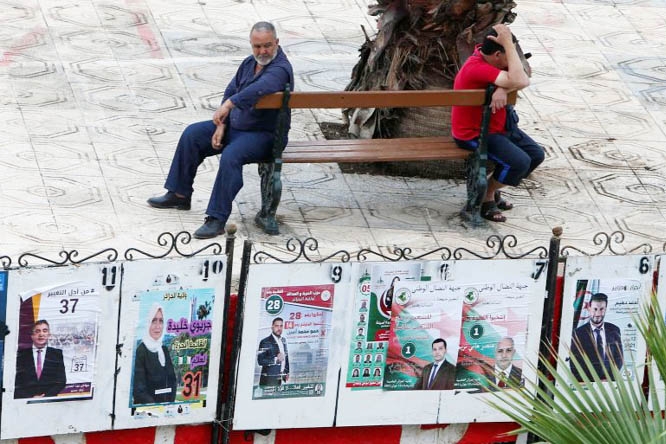
AL Jazeera :
Algerians voted in local elections seen as key in President Abdelmadjid Tebboune’s push to turn the page on the two-decade rule of late president Abdelaziz Bouteflika.
But despite official campaigns urging Algerians to “make their mark”, the vote for municipal and provincial councils on Saturday sparked little public interest.
The election is the third vote in Algeria under Tebboune, who has promised to reform state institutions inherited from Bouteflika, a strongman who ruled the country for two decades.
Observers predicted a low turnout as with the poorly attended elections since Bouteflika was driven from power by the Hirak pro-democracy protest movement in April 2019.
The North African country’s rulers are trying to “impose their will despite the embarrassing results of previous elections”, said analyst Mohamed Hennad.
Polling stations opened at 8am (07:00 GMT) and close at 7pm. More than 23 million people are eligible to vote with 15,230 candidates standing and results expected on Sunday.
Campaigning had been muted despite calls by authorities on Algerians to take part if they “want change” and “institution-building”.
Tebboune was elected in a contentious, widely boycotted 2019 ballot months after Bouteflika stepped down under pressure from the army and Hirak rallies. He pledged to break with local and regional elections marred by widespread claims of fraud in the era of Bouteflika, who died in September at the age of 84. In a televised interview on Friday, Tebboune, a former prime minister under Bouteflika, called on Algerians to participate actively in the vote.
“If the people want change, it is time they do something about it themselves by voting,” he said.
Algeria’s local assemblies elect two-thirds of members of the national parliament’s upper house, with the president appointing the remainder.
Redouane Boudjemaa, a journalism professor at the University of Algiers, said the vote was simply “an attempt to clean up the façade of local councils by changing their members to benefit the ruling class”.
“Politics at the moment is limited to slogans proclaiming that the country has entered a new era, while all indicators point to the contrary.”
Tebboune’s rule has seen a crackdown on journalists and Hirak activists, even as he has packaged important policy moves as responses to the calls by the protest movement for reform. He has also faced a diplomatic crisis with Algeria’s colonial ruler France and is embroiled in a diplomatic crisis with neighbouring Morocco, with which Algiers severed diplomatic ties in August over the disputed territory of Western Sahara.
But in his televised remarks on Friday, Tebboune said “these relations must return to normal provided the other party [France] conceives them on an equal basis, without provocation.”

